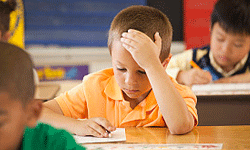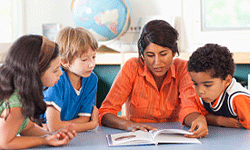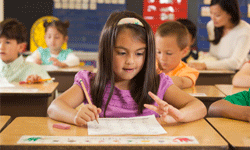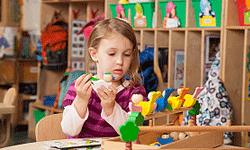Welcome to official schooling! Sure, kindergarten was a big deal, but that's really just an introduction -- one that's still pretty relaxed and play-based. This year, your child is going to get down to work.
A bunch of U.S. states don't actually require school attendance before first grade, so this really is the start of your child's formal education; you're in for some exciting stuff. If you thought your child grew up last year, just wait. Most first graders are 6 or 7 years old when this school year begins, and they're capable of a lot more than they were at 5 or 6. By the end of first grade, you'll have a full-on "big kid" on your hands.
Advertisement
Here, five of the coolest discoveries your child will make this year. The first one probably seems completely intuitive to you, but to your little one it can be a revelation ...



